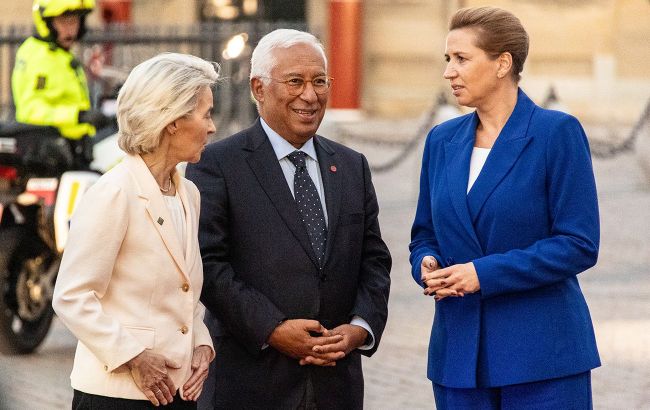EU leaders fail to approve €140B Ukraine reparations plan - FT
 EU leaders at the Copenhagen summit (photo: Getty Images)
EU leaders at the Copenhagen summit (photo: Getty Images)
EU leaders have so far failed to reach an agreement on the European Commission's proposal to provide Ukraine with a €140 billion credit backed by frozen Russian assets, according to the Financial Times.
At an informal EU summit in Copenhagen on October 1, Belgium refused to support the initiative, while France and Luxembourg expressed concerns about its legal implications.
Legal concerns
The European Commission proposed to use revenues from frozen Russian assets held in the Belgian depository Euroclear to provide Ukraine with credits for 2026–2027.
Ukraine would have to repay the funds only if Russia were to pay compensation for the damage caused by the war. However, the use of frozen assets without a clear legal basis has raised concerns in several countries.
Belgium demands collective responsibility
Belgian Prime Minister Bart De Wever stated that the country would not support the use of frozen assets without guarantees of collective responsibility from all EU member states.
Belgium, where most of the frozen Russian assets are located, fears potential legal consequences and insists that the risks be shared among all member states.
France and Luxembourg express concerns
France and Luxembourg have also raised doubts about the legal soundness of the proposed scheme. French President Emmanuel Macron emphasized the importance of adhering to international law and expressed concern about the possible consequences for the euro's reputation as a reliable currency.
Need for further consultations
Despite overall support for the idea, the EU acknowledged the need for additional consultations and further work on the legal aspects of the proposal.
The European Commission pledged to take the concerns of member states into account and continue working on the proposal to ensure its compliance with international law and the interests of all member states.
Ukraine is counting on the funds
According to the EU plan, starting in 2026, Ukraine is expected to receive reparations from Russia. They would be provided as an EU credit worth $140 billion, financed through frozen Russian assets.
The head of the Budget Committee of the Verkhovna Rada (Ukraine's parliament) stated that the reparations credit, backed by frozen Russian assets, could become the primary source of support for Ukraine in 2026.


